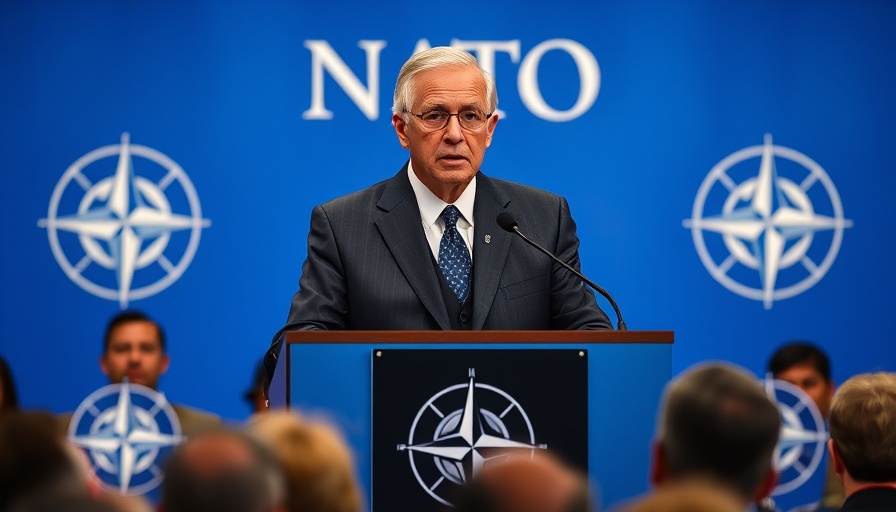
Understanding the Prelude to US-Iran Talks
In a surprising announcement at a NATO summit, President Donald Trump declared that the United States would engage in talks with Iran next week. The announcement came in the backdrop of a fragile ceasefire between Iran and Israel that has just begun to hold. With tensions remaining high, the prospect of diplomacy raises questions regarding both nations' intentions. While President Trump expressed a lack of urgency regarding a formal agreement, insisting that the U.S. had successfully diminished Iran's nuclear capabilities through military action, the reality on the ground may be significantly more complex.
In Donald Trump announces talks between US and Iranian officials next week, the discussion dives into the complexities of diplomatic engagement, exploring key insights that sparked deeper analysis on our end.
The Impact of Perceived Military Success
President Trump claimed that U.S. strikes had effectively crippled Iran's nuclear program, a narrative supported by the assertion of the United Nations nuclear watchdog noting extensive damage to several Iranian sites. This claim, however, needs to be taken with caution. The reality is intertwined with the ongoing geopolitical dynamics in the Middle East, where military actions often mask underlying issues, including public opinion both in the U.S. and Iran. The question arises: have these military interventions genuinely curtailed the motivation for nuclear development or have they reinforced the Iranian resolve to pursue such capabilities as perceived deterrents?
The Complexity of the Iranian Response
While the headlines might suggest that there is movement towards an agreement, Iranian President Massoud Peskin announced that Iran had emerged victorious from what he termed the "12-day war" against Israel. This declaration of victory signals a steadfast posture within Iran against conceding nuclear ambitions, which President Trump is demanding as a precondition for subsequent diplomatic talks. The potential for negotiations appears to hang by a thread, largely dictated by the rhetoric and actions of both leaders.
Putting Pressure on Regional Alliances
The fragility of the ceasefire not only affects U.S.-Iran relations, but it also ripples across regional alliances. The Arab nations, who have historically viewed Iran's nuclear aspirations with suspicion, are waiting with bated breath to observe the outcomes of the upcoming discussions. An engagement from the U.S. could be perceived as an endorsement of Iran's nuclear program, influencing the regional power dynamic significantly. The decisions taken at these talks might spur a new wave of alliances or reignite fears of an arms race.
The Broader Implications for Global Politics
The proposed talks between Trump and Iranian officials not only put U.S. foreign policy under the microscope but also reflect larger patterns of international diplomacy. As the world watches, the perception of U.S. commitment to containing nuclear threats versus engaging diplomatically raises critical questions about the balance of power. For countries in Africa and beyond, the lessons learned from these negotiations can guide their diplomatic strategies when dealing with nuclear-armed countries. The question remains—can diplomacy triumph where military might has faltered?
Conclusions and Moving Forward
As the date for discussions approaches, the global community, particularly nations within Africa—many of which are navigating their own complex geopolitical landscapes—should take note. The intersection of power dynamics, military actions, and diplomatic engagements presents a fertile ground for analysis. In this evolving scenario, awareness and understanding are paramount, fostering an environment where the principles of diplomacy and dialogue are championed over conflict.
For professionals and policymakers, the key takeaway is to remain informed and engaged in the ongoing dialogue surrounding U.S.-Iran relations. The stakes are high, and the ripple effects of these discussions will undoubtedly influence international relations beyond the immediate parties involved. Join the conversation and explore more about African perspectives on global diplomacy—your voice matters in shaping the diplomatic discourse!
 Add Row
Add Row  Add
Add 




Write A Comment